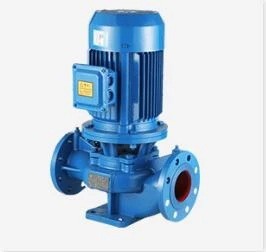Khmer
- Afrikaans
- Albanian
- Amharic
- Arabic
- Armenian
- Azerbaijani
- Basque
- Belarusian
- Bengali
- Bosnian
- Bulgarian
- Catalan
- Cebuano
- Corsican
- Croatian
- Czech
- Danish
- Dutch
- English
- Esperanto
- Estonian
- Finnish
- French
- Frisian
- Galician
- Georgian
- German
- Greek
- Gujarati
- Haitian Creole
- hausa
- hawaiian
- Hebrew
- Hindi
- Miao
- Hungarian
- Icelandic
- igbo
- Indonesian
- irish
- Italian
- Japanese
- Javanese
- Kannada
- kazakh
- Khmer
- Rwandese
- Korean
- Kurdish
- Kyrgyz
- Lao
- Latin
- Latvian
- Lithuanian
- Luxembourgish
- Macedonian
- Malgashi
- Malay
- Malayalam
- Maltese
- Maori
- Marathi
- Mongolian
- Myanmar
- Nepali
- Norwegian
- Norwegian
- Occitan
- Pashto
- Persian
- Polish
- Portuguese
- Punjabi
- Romanian
- Russian
- Samoan
- Scottish Gaelic
- Serbian
- Sesotho
- Shona
- Sindhi
- Sinhala
- Slovak
- Slovenian
- Somali
- Spanish
- Sundanese
- Swahili
- Swedish
- Tagalog
- Tajik
- Tamil
- Tatar
- Telugu
- Thai
- Turkish
- Turkmen
- Ukrainian
- Urdu
- Uighur
- Uzbek
- Vietnamese
- Welsh
- Bantu
- Yiddish
- Yoruba
- Zulu
Telephone: +86 13120555503
Email: frank@cypump.com
ធ្នូ . 13, 2024 11:37 Back to list
pipeline injection pump
Understanding Pipeline Injection Pumps
Pipeline injection pumps play a crucial role in various industrial processes by facilitating the effective transport and injection of fluids within pipelines. These pumps are essential in sectors such as oil and gas, water treatment, and chemical manufacturing, allowing for precise control over fluid flow and maintaining system efficiency. In this article, we will explore the functioning, types, applications, and benefits of pipeline injection pumps.
Functionality of Pipeline Injection Pumps
At its core, a pipeline injection pump is designed to introduce chemicals, additives, or other media into a pipeline system at a specified rate and pressure. This process often involves integrating the pump with a control system that can monitor and regulate the injection rate in real-time. The primary function of injection pumps is to ensure that the correct amount of fluids is injected consistently, which is critical for maintaining desired operating conditions and optimizing overall system performance.
Types of Pipeline Injection Pumps
There are several types of injection pumps, each suited for specific applications and fluid characteristics
1. Positive Displacement Pumps These pumps work by trapping a fixed volume of fluid and forcing it through the discharge pipe. They are commonly used for precise metering applications and can handle viscous fluids, making them ideal for chemical dosing.
2. Centrifugal Pumps Utilizing centrifugal force, these pumps manage lower viscosity fluids efficiently. They are less accurate than positive displacement pumps but are suitable for large volume applications where pressure and flow consistency are less critical.
3. Diaphragm Pumps Known for their flexibility and ability to handle slurries and corrosive fluids, diaphragm pumps are widely used in various industries. Their unique mechanism allows for steady flow, making them ideal for applications requiring accurate dosing.
4. Peristaltic Pumps These pumps work by compressing and relaxing a flexible tube to move the fluid. They are particularly useful for applications involving sterile fluids as they minimize contamination risk.
Applications of Pipeline Injection Pumps
Pipeline injection pumps find applications across diverse sectors, including
pipeline injection pump

- Oil and Gas Industry These pumps are vital for injecting chemical inhibitors, dispersants, and biocides to enhance the efficiency of oil extraction and transportation
.- Water Treatment In municipal and industrial water treatment facilities, injection pumps are used to dose chemicals for disinfection, coagulation, and pH adjustment, ensuring safe and clean water supply.
- Chemical Manufacturing Pipeline injection pumps facilitate the precise blending of raw materials and additives, playing a significant role in the production of various chemicals.
- Food and Beverage Industry They are used for ingredient dosing and flavor enhancement, ensuring consistency and quality in food processing.
Benefits of Using Pipeline Injection Pumps
1. Precision and Accuracy The primary advantage of injection pumps is their ability to deliver precise quantities of fluid consistently. This precision is vital in applications where over- or under-dosing can lead to product quality issues or safety hazards.
2. Efficiency By automating the injection process, these pumps enhance operational efficiency, minimizing labor costs and reducing human error.
3. Versatility Given the availability of different types of pumps, businesses can select equipment tailored to their specific fluid characteristics and operational requirements.
4. Maintenance and Reliability Most modern pipeline injection pumps are designed for durability and require minimal maintenance. This reliability translates into reduced downtime and increased productivity.
5. Environmental Compliance Many industries face strict environmental regulations. Pipeline injection pumps facilitate compliance by ensuring accurate dosing of chemicals, minimizing waste, and reducing the risk of spills or leaks.
Conclusion
Pipeline injection pumps are indispensable tools in various industrial applications, offering precise injection of fluids that are crucial for maintaining operational efficiency and product quality. By understanding their functionality, types, and applications, industries can make informed decisions when selecting the right pump for their needs. With ongoing advancements in technology, the future of pipeline injection pumps will likely bring even greater efficiency gains and capabilities, further solidifying their role in modern industrial processes.
-
ISG Series Vertical Pipeline Pump - Chi Yuan Pumps Co., LTD.|Advanced Hydraulic Design&Energy-Efficient Solutions
NewsJul.30,2025
-
ISG Series Vertical Pipeline Pump - Chi Yuan Pumps Co., LTD.
NewsJul.30,2025
-
ISG Series Vertical Pipeline Pump - Chi Yuan Pumps Co., LTD.|energy-efficient fluid handling&industrial durability
NewsJul.30,2025
-
ISG Series Vertical Pipeline Pump - Chi Yuan Pumps | Advanced Engineering&Industrial Efficiency
NewsJul.30,2025
-
ISG Series Pipeline Pump - Chi Yuan Pumps | High Efficiency, Energy Saving
NewsJul.30,2025
-
ISG Series Vertical Pipeline Pump-Chi Yuan Pumps|High Efficiency&Reliable Performance
NewsJul.29,2025










